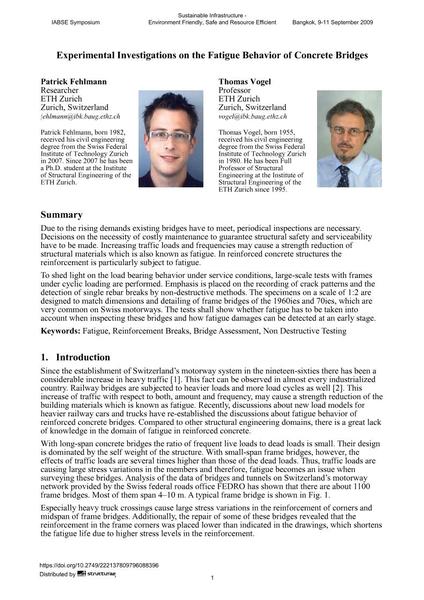Experimental Investigations on the Fatigue Behavior of Concrete Bridges

|
|
|||||||||||
Détails bibliographiques
| Auteur(s): |
Patrick Fehlmann
Thomas Vogel |
||||
|---|---|---|---|---|---|
| Médium: | papier de conférence | ||||
| Langue(s): | anglais | ||||
| Conférence: | IABSE Symposium: Sustainable Infrastructure - Environment Friendly, Safe and Resource Efficient, Bangkok, Thailand, 9-11 September 2009 | ||||
| Publié dans: | IABSE Symposium Bangkok 2009 | ||||
|
|||||
| Page(s): | 45-54 | ||||
| Nombre total de pages (du PDF): | 8 | ||||
| Année: | 2009 | ||||
| DOI: | 10.2749/222137809796088396 | ||||
| Abstrait: |
Due to the rising demands existing bridges have to meet, periodical inspections are necessary. Decisions on the necessity of costly maintenance to guarantee structural safety and serviceability have to be made. Increasing traffic loads and frequencies may cause a strength reduction of structural materials which is also known as fatigue. In reinforced concrete structures the reinforcement is particularly subject to fatigue. To shed light on the load bearing behavior under service conditions, large-scale tests with frames under cyclic loading are performed. Emphasis is placed on the recording of crack patterns and the detection of single rebar breaks by non-destructive methods. The specimens on a scale of 1:2 are designed to match dimensions and detailing of frame bridges of the 1960ies and 70ies, which are very common on Swiss motorways. The tests shall show whether fatigue has to be taken into account when inspecting these bridges and how fatigue damages can be detected at an early stage. |
||||
